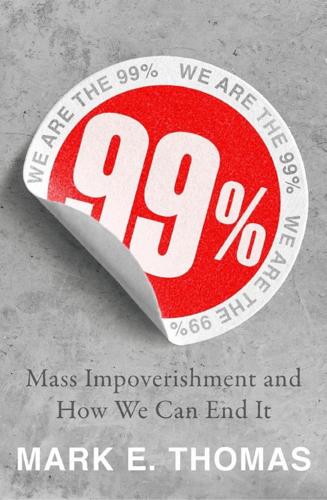
99%: Mass Impoverishment and How We Can End It
by
Mark Thomas
Published 7 Aug 2019
C., Pessimism Preserved: Real wages in the British Industrial Revolution, 2007 24 Schwab, 2015 25 Bureau of Labor Statistics, 2015 26 Frey & Osborne, 2013 27 Faroohar, 2018 28 Manyika, et al., 2017 29 Heath, 2018 30 Cowen, 2013 31 Murphey, 1999 Chapter 6: Wealth, Power and Freedom 1 Chaggaris, 2012 2 Churchill, 1947 3 Piketty, Capital in the 21st century, 2014 4 Stein, 2006 5 Humanities Texas, 1963 6 Rucker, 2008 7 Lawler, 2015 8 Lewis S. , 2013 9 Jones, The Establishment, 2014 10 Swinford, 2014 11 Supreme Court of the United States, 2010 12 Greenhouse, 2012 13 NASA, 2016 14 Ipsos MORI, 2014 15 Brulle, 2013 16 Fischer, 2013 17 Mayer, 2016 18 Jones, The Establishment, 2014 19 Rosenberg, 2018 20 Supreme Court of the United States, 2010 21 Roosevelt, Franklin D., State Of The Union Address, 1941 22 Berlin, 2018 23 OECD, 2010 24 Office for National Statistics, 2015 25 Wolff, 2012 26 The Economist, 2014 27 Stein, 2006 28 Bigman, 2015 29 Tudor Jones, 2015 30 Soros, George, ‘Billionaire George Soros: I Should Pay More In Taxes’, ThinkProgress, 13 February 2012 31 Freeland, 2014 Chapter 7: Eight Scenarios 1 Bank of England, 2016 2 Allen, Monaghan, & Inman , 2017 3 Thomas N. , 2016 4 Corlett, Finch, Gardiner, & Whittaker, 2016 5 Institute on Taxation and Economic Policy, 2017 Part 2: Why We Don’t Act 1 Alston, 2018 Chapter 8: Going Post-Fact 1 Moynihan, n.d. 2 Noble & Lockett, 2016 3 Goebbels, 1928 4 History.com, 2009 5 ONS, 2015 6 Political Science Resources, 2016 7 The Conservative Party Archive / Getty, 2009 8 Godley, Seven unsustainable processes, 1999 9 Baker, 2002 10 Rodrik, 1997 11 Greenspan, 2008 12 Alford, 2010 13 King, 2003 14 Brown, 1999 15 BBC, 2009 16 Bernanke, 2007 17 Greenspan, 2008 18 Cassidy, 2010 19 Wallace, 2015 20 Goff & Parker, 2011 21 Connolly, 2016 22 Pariser, 2011 23 Kuchler, 2016 24 BBC, 2016 25 Dilnot, 2016 26 OECD, 2014 27 Nickell & Saleheen, 2015 28 Lewis H. , 2016 29 Benton, 2016 30 Boczkowski, 2016 31 Carney, Mark, ‘Keeping the patient alive: Monetary policy in a time of great disruption’, World Economic Forum, 6 December 2016 32 Agerholm, 2016 33 BBC, 2016 34 Harris & Eddy, 2016 35 Spiegelhalter, 2016 36 Harris & Eddy, 2016 37 Phys.org 2016 38 Yeats, 1920 39 Suskind, 2004 40 Nyhan & Reifler, 2006 Chapter 9: Myths and Metaphors 1 Popper, 1953 2 OECD, 2019 3 Library of Congress, 2015 4 OECD, 2010 5 Cowen, 2013 6 Blanchard & Leigh, Growth Forecast Errors and Fiscal Multipliers, 2013 7 Batini, Eyraud, & Weber, 2014 8 Cameron, Economy: There is no alternative TINA is back, 2013 9 Bank of England, 2015 10 Sky News, 2009 11 McLeay, Radia, & Thomas, 2014 12 Merkel, 2008 13 Federal Reserve Bank of St Louis, 2019 14 Office for National Statistics, 2016 15 Bennett, 2016 16 Rothwell, 2014 17 Payscale.com 2018 18 Smith, 1776 19 Chang, 2010 20 Hughes, 2017 21 Say, 1821 22 Kumar, 2015 23 Nalebuff & Bradenburger, 1996 24 Edward S.
…
Knotek, 2007 Chapter 10: Economic Models 1 Box, 1987 2 wikipedia, 2015 3 Balstone, 2015 4 Solow, 2010 5 Stiglitz, Where Modern Macroeconomics Went Wrong , 2017 6 Wren-Lewis, 2014 7 Saez & Zucman, 2014 8 Keen S. , 2001 9 Godley & Lavoie, Monetary Economics, 2012 10 Besley & Hennessy, British Academy reveals ‘Dangerous Recipe’ to the Queen, 2009 11 Baker, 2002 12 Bezemer, 2009 13 Lorenz, 1972 Chapter 11: Rhetoric over Reason 1 Bacon, 1625 2 Cowen, 2013 3 Schuknecht, 2012 4 IMF, 2015 5 BBC, 2007 6 Berg, 2011 7 IMF, 2008 8 Trichet, 2010 9 Skidelsky, Robert, ‘George Osborne’s cunning plan: how the chancellor’s austerity narrative has harmed recovery’, New Statesman, 29 April 2015 10 IMF, 2015 11 Blanchard & Leigh, Working paper WP/13/1, 2013 12 Cameron, David Cameron and the national debt monster, 2015 13 Bank of England, 2019 14 Wikipedia, 2015 15 Morley K. , 2015 16 Romney, Mitt Romney’s ‘47 Per cent’ Comments, 2012 17 Lansley & Mack, Breadline Britain, 2015 18 Aldrick, 2018 19 See Figure 40 20 See Appendix on website 21 Harrison, 1998 22 McMillan, 2008 23 Wilson & Wilson, 2007 24 McKinsey Global Institute, 2016 25 Islam, 2012 26 Bierce, 1911 Chapter 12: Catch-23 – The Narrative of Unaffordability 1 Heller, 1961 2 Cameron, Economy: There is no alternative TINA is back, 2013 3 Saez & Zucman, 2014 4 IRS, 2015 5 Ferrara, 2014 6 Dynan, Skinner, & Zeldes, 2004 7 UK Debt Bombshell, 2016. 8 Companies House, 2016 9 Office for Budget Responsibility, 2015 10 Chantril, 2015 11 Mason, Rowena, ‘Government raised bar for funding of flood defence schemes’, The Guardian, 11 February 2014 12 Bank of England, 2015 13 Turner, Between Debt and the Devil, 2016 14 Krugman, Be Ready To Mint That Coin, 2013 15 General government gross debt was £1,763.8 billion at the end of the financial year ending March 2018 according to the Office for National Statistics, 2018 16 Stone, 2015 17 Turnbull, 2015 18 Kaufmann, 2015 19 DeLong, 2015 Part 3: Building The Future 1 eupedia, 2016 Chapter 13: 50 Shades of Capitalism 1 Rand, 1946 2 CIA, 2015 3 Wee, 2013 4 IMF, 2015 5 World Happiness Report, 2015 Chapter 14: The Victimless Revolution 1 Kennedy, 1962 2 International Energy Agency, 2015 3 Ashley & Greenemeier, 2013 4 OECD, 2015 5 United Nations Population Division, 2017 6 Congressional Budget Office, 2014 7 Lopez, 2013 8 Dolan, 2013 9 Forbes, 2016 10 O’Brien, 2014 11 Haaretz, 2014 12 Wood, 2011 13 Osnos, Evan, ‘Doomsday Prep for the Super-Rich’, The New Yorker, 22 January 2017 14 Dynan, Skinner, & Zeldes, 2004 Chapter 15: The Abundance Manifesto 1 Statement from Prime Minister Theresa May, 2016 2 Armstrong, 1982 3 Alston, 2018 4 The IPPR Commission on Economic Justice, 2018 5 Mazzucato, 2013 6 Hammond, 2013 7 Treasury, 2013 8 Castella, 2015 9 Pitt, 2008 10 Department for Environment, Food and Rural Affairs, 2015 11 Burn-Callander, 2015 12 American Society of Civil Engineers, 2016 13 Davis, 2016 14 Murphy P. , 2016 15 Burgess, Ford, Guthrie, & Toplensky, 2016 16 IMF, 2008 17 Haldane, 2010 18 Independent Commission on Banking, 2011 19 King, 2016 20 RSA, 2017 21 topendsports.com 2016 22 United Nations, 2017 23 Chantril, 2015 24 Beveridge, 1942 25 Beveridge, 1942 Chapter 16: Your Role in the Change 1 Walker, 2013 2 Bank of England, 2019 3 Alston, 2018 Acknowledgements This book would not exist without data.

Rogue States
by
Noam Chomsky
Published 9 Jul 2015
The UNCTAD proposals were summarily dismissed by the great powers, along with the call for a “new international order” generally; the US, in particular, insists that “development is not a right,” and that it is “preposterous” and a “dangerous incitement” to hold otherwise in accord with the socioeconomic provisions of the Universal Declaration of Human Rights, which the US rejects.35 The world did move—or more accurately, was moved—towards a new international economic order, but along a different course, catering to the needs of a different sector, namely its designers—hardly a surprise, any more than one should be surprised that in standard doctrine the instituted form of “globalization” should be depicted as an inexorable process to which “there is no alternative” (TINA), as Margaret Thatcher thoughtfully declared. One early UNCTAD proposal was a program for stabilizing commodity prices, routine practice within the industrial countries by means of public subsidy, though it was threatened briefly in the US when Congress was taken over in 1994 by right-wing elements that seemed to believe their own rhetoric, much to the consternation of business leaders who understand that market discipline is for the defenseless, not for them.
…
The conference took special note of what it called the residual “culture of terror,” which lasts after the actual terror declines and has the effect of “domesticating the expectations of the majority,” who abandon any thought of “alternatives different to the demands of the powerful.” They’ve learned the lesson that There Is No Alternative—TINA, as it’s called—Maggie Thatcher’s cruel phrase. The idea is that there is no alternative—that’s now the familiar slogan of the corporate version of globalization. In the dependencies, the great achievement of the terrorist operations has been to destroy the hopes that had been raised in Latin America and Central America in the 1970s, inspired by popular organizing throughout the region and the “preferential option for the poor” of the Church, which was severely punished for that deviation from good behavior.
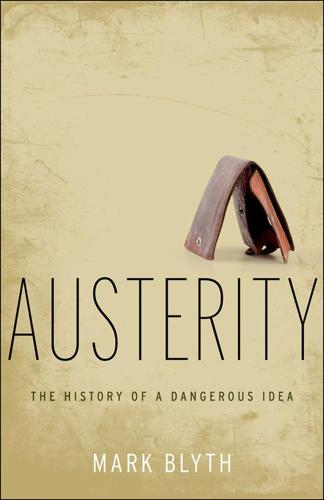
Austerity: The History of a Dangerous Idea
by
Mark Blyth
Published 24 Apr 2013
Why, then, does the idea continue to “dominate the economic thought, both practical and theoretical, of the governing and academic classes of this generation, as it has for a hundred years past” as John Maynard Keynes put in 1936?1 After all, it has been eighty years since Keynes wrote that line, and austerity’s luster has yet to fade. Two answers present themselves to us. The first is a variant of the line popularized by Mrs. Thatcher—“there is no alternative” (TINA). In light of the previous chapter, you might have the impression that this is exactly the case being made in this book. After all, it seems that when you have built a banking system that is too big to bail, and you have thrown away all your other policy tools (control of interest rates, exchange rates, etc.) in a fit of “Europeanness,” there may not be much alternative to austerity, at least in Europe.
…
One year later, in April 2010, Alesina presented a simplified version of this paper at the ECOFIN meeting in Madrid. He began by noting that, unlike previous high-debt occasions, such as the aftermath of World War II, growth is not going to make the Eurozone’s pile of debt disappear. Rather, there is no alternative (TINA) to fiscal adjustment. Happily, “many even sharp reductions of budget deficits have been accompanied and immediately followed by sustained growth rather than recessions even in the very short run,” so long as the policy has been credible, which means decisive and large.149 Once again, expectations of a better future create a better present while falling bond yields create more wealth, again due to expectations effects.150 In terms of actual policy, taxes should not be raised and entitlements should be cut.151 This much is drawn from the previous paper.
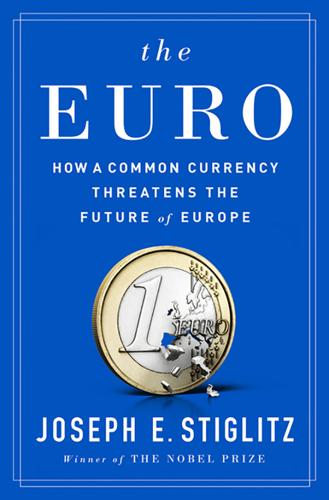
The Euro: How a Common Currency Threatens the Future of Europe
by
Joseph E. Stiglitz
and
Alex Hyde-White
Published 24 Oct 2016
The euro was supposed to “serve” the European people; now they are asked to accept lower wages, higher taxes, and lower social benefits, in order to save the euro. And it is not just Europe’s economy that is being sacrificed but, in many ways, confidence in its democracy. The Germans and other leaders in the eurozone have put forward the idea that “there is no alternative” (TINA) to their draconian policies. I have explained how there are—alternatives that would even make the creditors better off. In this concluding chapter, I want to address three questions: Where is the eurozone likely to go? Why is it taking the course that it is—is there something else beneath the surface that is playing out?
…
Africa, 10, 95, 381 globalization and, 51 aggregate demand, 98, 107, 111, 118–19, 189, 367 deflation and, 290 lowered by inequality, 212 surpluses and, 187, 253 tech bubble slump in, 250 as weakened by imports, 111 aggregate supply, 99, 104, 189 agricultural subsidies, 45, 197 agriculture, 89, 224, 346 airlines, 259 Akerlof, George, 132 American Express, 287 Apple, 81, 376 Argentina, 18, 100, 110, 117, 371 bailout of, 113 debt restructuring by, 205–6, 266, 267 Arrow-Debreu competitive equilibrium theory, 303 Asia, globalization and, 51 asset price bubbles, 172 Athens airport, 191, 367–68 austerity, xvi–xvii, 9, 18–19, 20, 21, 28–29, 54, 69–70, 95, 96, 98, 97, 103, 106, 140, 150, 178, 185–88, 206, 211, 235, 316–17 academics for, 208–13 debt restructuring and, 203–6 design of programs of, 188–90 Germany’s push for, 186, 232 government investment curtailed by, 217 opposition to, 59–62, 69–70, 207–8, 315, 332, 392 private, 126–27, 241–42 reform of, 263–65 Austria, 331, 343 automatic destabilizers, see built-in destabilizers automatic stabilizers, 142, 244, 247–48, 357 flexible exchange rate as, 248 bail-ins, 113 bailouts, 91–92, 111, 112–13, 201–3, 354, 362–63, 370 of banks, 127–28, 196, 279, 362–63 of East Asia, 202 of Latin America, 202 of Mexico, 202 of Portugal, 178–79 of Spanish banks, 179, 199–200, 206 see also programs balanced-budget multiplier, 188–90, 265 Balkans, 320 bank capital, 284–85 banking system, in US, 91 banking union, 129–30, 241–42, 248, 263 and common regulations, 241 and deposit insurance, 241, 242, 246 Bank of England, 359 inflation target of, 157 Bank of Italy, 158 bankruptcies, 77, 94, 102, 104, 346, 390 super–chapter 11 for, 259–60 banks, 198–201 bailouts of, 127–28, 196, 279, 362–63 capital requirements of, 152, 249 closing of, 378 credit creation by, 280–82 development, 137–38 evolution of, 386–87 forbearance of regulations on, 130–31 Greek, 200–201, 228–29, 231, 270, 276, 367, 368 lending contracted by, 126–27, 246, 282–84 money supply increased by, 277 restructuring of, 113 small, 171 in Spain, 23, 186, 199, 200, 242, 270, 354 too-big-to-fail, 360 bank transfers, 49 Barclays, 131 behavioral economics, 335 Belgium, 6, 331, 343 belief systems, 53 Berlin Wall, 6 Bernanke, Ben, 251, 351, 363, 381 bilateral investment agreement, 369 Bill of Rights, 319 bimetallic standard, 275, 277 Blanchard, Olivier, 211 bonds, 4, 114, 150, 363 confidence in, 127, 145 Draghi’s promise to support, 127, 200, 201 GDP-indexed, 267 inflation and, 161 long-term, 94 restructuring of, 159 bonds, corporate, ECB’s purchase of, 141 borrowing, excessive, 243 Brazil, 138, 370 bailout of, 113 bread, 218, 230 Bretton Woods monetary system, 32, 325 Brunnermeier, Markus K., 361 Bryan, William Jennings, xii bubbles, 249, 381 credit, 122–123 real estate, see real estate bubble stability threatened by, 264 stock market, 200–201 tech, 250 tools for controlling, 250 budget, capital, 245 Buffett, Warren, 287, 290 built-in destabilizers, 96, 142, 188, 244, 248, 357–58 common regulatory framework as, 241 Bulgaria, 46, 331 Bundesbank, 42 Bush, George W., 266 Camdessus, Michel, 314 campaign contributions, 195, 355 Canada, 96 early 1990s expansion of, 209 in NAFTA, xiv railroad privatization in, 55 tax system in, 191 US’s free trade with, 45–46, 47 capital, 76–77 bank, 284–85 human, 78, 137 return to, 388 societal vs. physical, 77–78 tax on, 356 unemployment increased by, 264 capital adequacy standards, 152 capital budget, 245 capital controls, 389–90 capital flight, 126–34, 217, 354, 359 austerity and, 140 and labor flows, 135 capital flows, 14, 15, 25, 26, 27–28, 40, 116, 125, 128, 131, 351 economic volatility exacerbated by, 28, 274 and foreign ownership, 195 and technology, 139 capital inflows, 110–11 capitalism: crises in, xviii, 148–49 inclusive, 317 capital requirements, 152, 249, 378 Caprio, Gerry, 387 capture, 158–60 carbon price, 230, 260, 265, 368 cash, 39 cash flow, 194 Catalonia, xi CDU party, 314 central banks, 59, 354, 387–88 balance sheets of, 386 capture of, 158–59 credit auctions by, 282–84 credit creation by, 277–78 expertise of, 363 independence of, 157–63 inequality created by, 154 inflation and, 153, 166–67 as lender of last resort, 85, 362 as political institutions, 160–62 regulations and, 153 stability and, 8 unemployment and, 8, 94, 97, 106, 147, 153 CEO compensation, 383 Chapter 11, 259–60, 291 childhood poverty, 72 Chile, 55, 152–53 China, 81, 98, 164, 319, 352 exchange-rate policy of, 251, 254, 350–51 global integration of, 49–50 low prices of, 251 rise of, 75 savings in, 257 trade surplus of, 118, 121, 350–52 wages controlled in, 254 as world’s largest economy, 318, 327 chits, 287–88, 290, 299–300, 387, 388–389 Citigroup, 355 climate change, 229–30, 251, 282, 319 Clinton, Bill, xiv, xv, 187 closing hours, 220 cloves, 230 cognitive capture, 159 Cohesion Fund, 243 Cold War, 6 collateral, 364 collective action, 41–44, 51–52 and inequality, 338 and stabilization, 246 collective bargaining, 221 collective goods, 40 Common Agricultural Policy, 338 common regulatory framework, 241 communism, 10 Community Reinvestment Act (CRA), 360, 382 comparative advantage, 12, 171 competition, 12 competitive devaluation, 104–6, 254 compromise, 22–23 confidence, 95, 200–201, 384 in banks, 127 in bonds, 145 and structural reforms, 232 and 2008 crisis, 280 confirmation bias, 309, 335 Congress, US, 319, 355 connected lending, 280 connectedness, 68–69 Connecticut, GDP of, 92 Constitutional Court, Greek, 198 consumption, 94, 278 consumption tax, 193–94 contract enforcement, 24 convergence, 13, 92–93, 124, 125, 139, 254, 300–301 convergence criteria, 15, 87, 89, 96–97, 99, 123, 244 copper mines, 55 corporate income tax, 189–90, 227 corporate taxes, 189–90, 227, 251 corporations, 323 regulations opposed by, xvi and shutdown of Greek banks, 229 corruption, 74, 112 privatization and, 194–95 Costa, António, 332 Council of Economic Advisers, 358 Council of State, Greek, 198 countercyclical fiscal policy, 244 counterfactuals, 80 Countrywide Financial, 91 credit, 276–85 “divorce”’s effect on, 278–79 excessive, 250, 274 credit auctions, 282–84 credit bubbles, 122–123 credit cards, 39, 49, 153 credit creation, 248–50, 277–78, 386 by banks, 280–82 domestic control over, 279–82 regulation of, 277–78 credit default swaps (CDSs), 159–60 crisis policy reforms, 262–67 austerity to growth, 263–65 debt restructuring and, 265–67 Croatia, 46, 331, 338 currency crises, 349 currency pegs, xii current account, 333–34 current account deficits, 19, 88, 108, 110, 120–121, 221, 294 and exit from euro, 273, 285–89 see also trade deficit Cyprus, 16, 30, 140, 177, 331, 386 capital controls in, 390 debt-to-GDP ratio of, 231 “haircut” of, 350, 367 Czech Republic, 46, 331 debit cards, 39, 49 debtors’ prison, 204 debt restructuring, 201, 203–6, 265–67, 290–92, 372, 390 of private debt, 291 debts, xx, 15, 93, 96, 183 corporate, 93–94 crisis in, 110–18 in deflation, xii and exit from eurozone, 273 with foreign currency, 115–18 household, 93–94 increase in, 18 inherited, 134 limits of, 42, 87, 122, 141, 346, 367 monetization of, 42 mutualization of, 242–43, 263 place-based, 134, 242 reprofiling of, 32 restructuring of, 259 debt-to-GDP ratio, 202, 210–11, 231, 266, 324 Declaration of Independence, 319 defaults, 102, 241, 338, 348 and debt mutualization, 243 deficit fetishism, 96 deficits, fiscal, xx, 15, 20, 93, 96, 106, 107–8, 122, 182, 384 and balanced-budget multiplier, 188–90, 265 constitutional amendment on, 339 and exit from euro, 273, 289–90 in Greece, 16, 186, 215, 233, 285–86, 289 limit of, 42, 87, 94–95, 122, 138, 141, 186, 243, 244, 265, 346, 367 primary, 188 problems financing, 110–12 structural, 245 deficits, trade, see trade deficits deflation, xii, 147, 148, 151, 166, 169, 277, 290 Delors, Jacques, 7, 332 democracy, lack of faith in, 312–14 Democracy in America (Tocqueville), xiii democratic deficit, 26–27, 35, 57–62, 145 democratic participation, xix Denmark, 45, 307, 313, 331 euro referendum of, 58 deposit insurance, 31, 44, 129, 199, 301, 354–55, 386–87 common in eurozone, 241, 242, 246, 248 derivatives, 131, 355 Deutsche Bank, 283, 355 devaluation, 98, 104–6, 254, 344 see also internal devaluation developing countries, and Washington Consensus, xvi discretion, 262–63 discriminatory lending practices, 283 disintermediation, 258 divergence, 15, 123, 124–44, 255–56, 300, 321 in absence of crisis, 128–31 capital flight and, 126–34 crisis policies’ exacerbation of, 140–43 free mobility of labor and, 134–36, 142–44, 242 in public investment, 136–38 reforms to prevent, 243 single-market principle and, 125–26 in technology, 138–39 in wealth, 139–40 see also capital flows; labor movement diversification, of production, 47 Dodd-Frank Wall Street Reform and Consumer Protection Act, 355 dollar peg, 50 downsizing, 133 Draghi, Mario, 127, 145, 156, 158, 165, 269, 363 bond market supported by, 127, 200, 201 Drago, Luis María, 371 drug prices, 219 Duisenberg, Willem Frederik “Wim,” 251 Dynamic Stochastic Equilibrium model, 331 East Asia, 18, 25, 95, 102–3, 112, 123, 202, 364, 381 convergence in, 138 Eastern Europe, 10 Economic Adjustment Programme, 178 economic distortions, 191 economic growth, xii, 34 confidence and, 232 in Europe, 63–64, 69, 73–74, 74, 75, 163 lowered by inequality, 212–13 reform of, 263–65 and structural reforms, 232–35 economic integration, xiv–xx, 23, 39–50 euro and, 46–47 political integration vs., 51–57 single currency and, 45–46 economic rents, 226, 280 economics, politics and, 308–18 economic security, 68 economies of scale, 12, 39, 55, 138 economists, poor forecasting by, 307 education, 20, 76, 344 investment in, 40, 69, 137, 186, 211, 217, 251, 255, 300 electricity, 217 electronic currency, 298–99, 389 electronics payment mechanism, 274–76, 283–84 emigration, 4, 68–69 see also migration employment: central banks and, 8, 94, 97 structural reforms and, 257–60 see also unemployment Employment Act (1946), 148 energy subsidies, 197 Enlightenment, 3, 318–19 environment, 41, 257, 260, 323 equality, 225–26 equilibrium, xviii–xix Erasmus program, 45 Estonia, 90, 331, 346 euro, xiv, 325 adjustments impeded by, 13–14 case for, 35–39 creation of, xii, 5–6, 7, 10, 333 creation of institutions required by, 10–11 divergence and, see divergence divorce of, 272–95, 307 economic integration and, 46–47, 268 as entailing fixed exchange rate, 8, 42–43, 46–47, 86–87, 92, 93, 94, 102, 105, 143, 193, 215–16, 240, 244, 249, 252, 254, 286, 297 as entailing single interest rate, 8, 85–88, 92, 93, 94, 105, 129, 152, 240, 244, 249 and European identification, 38–39 financial instability caused by, 131–32 growth promised by, 235 growth slowed by, 73 hopes for, 34 inequality increased by, xviii interest rates lowered by, 235 internal devaluation of, see internal devaluation literature on, 327–28 as means to end, xix peace and, 38 proponents of, 13 referenda on, 58, 339–40 reforms needed for, xii–xiii, 28–31 risk of, 49–50 weakness of, 224 see also flexible euro Eurobond, 356 euro crisis, xiii, 3, 4, 9 catastrophic consequences of, 11–12 euro-euphoria, 116–17 Europe, 151 free trade area in, 44–45 growth rates in, 63–64, 69, 73–74, 74, 75, 163 military conflicts in, 196 social models of, 21 European Central Bank (ECB), 7, 17, 80, 112–13, 117, 144, 145–73, 274, 313, 362, 368, 380 capture of, 158–59 confidence in, 200–201 corporate bonds bought by, 141 creation of, 8, 85 democratic deficit and, 26, 27 excessive expansion controlled by, 250 flexibility of, 269 funds to Greece cut off by, 59 German challenges to, 117, 164 governance and, 157–63 inequality created by, 154–55 inflation controlled by, 8, 25, 97, 106, 115, 145, 146–50, 151, 163, 165, 169–70, 172, 250, 256, 266 interest rates set by, 85–86, 152, 249, 302, 348 Ireland forced to socialize losses by, 134, 156, 165 new mandate needed by, 256 as political institution, 160–62 political nature of, 153–56 quantitative easing opposed by, 151 quantitative easing undertaken by, 164, 165–66, 170, 171 regulations by, 249, 250 unemployment and, 163 as unrepresentative, 163 European Commission, 17, 58, 161, 313, 332 European Court of Human Rights, 45 European Economic Community (EEC), 6 European Exchange Rate Mechanism (ERM), 30, 335 European Exchange Rate Mechanism II (ERM II), 336 European Free Trade Association, 44 European Free Trade Association Court, 44 European Investment Bank (EIB), 137, 247, 255, 301 European Regional Development Fund, 243 European Stability Mechanism, 23, 246, 357 European Union: budget of, 8, 45, 91 creation of, 4 debt and deficit limits in, 87–88 democratic deficit in, 26–27 economic growth in, 215 GDP of, xiii and lower rates of war, 196 migration in, 90 proposed exit of UK from, 4 stereotypes in, 12 subsidiarity in, 8, 41–42, 263 taxes in, 8, 261 Euro Summit Statement, 373 eurozone: austerity in, see austerity banking union in, see banking union counterfactual in, 235–36 double-dip recessions in, 234–35 Draghi’s speech and, 145 economic integration and, xiv–xx, 23, 39–50, 51–57 as flawed at birth, 7–9 framework for stability of, 244–52 German departure from, 32, 292–93 Greece’s possible exit from, 124 hours worked in, 71–72 lack of fiscal policy in, 152 and move to political integration, xvi, 34, 35, 51–57 Mundell’s work on dangers of, 87 policies of, 15–17 possible breakup of, 29–30 privatization avoided in, 194 saving, 323–26 stagnant GDP in, 12, 65–68, 66, 67 structure of, 8–9 surpluses in, 120–22 theory of, 95–97 unemployment in, 71, 135, 163, 177–78, 181, 331 working-age population of, 70 eurozone, proposed structural reforms for, 239–71 common financial system, see banking union excessive fiscal responsibility, 163 exchange-rate risks, 13, 47, 48, 49–50, 125, 235 exchange rates, 80, 85, 288, 300, 338, 382, 389 of China, 251, 254, 350–51 and competitive devaluation, 105–6 after departure of northern countries, 292–93 of euro, 8, 42–43, 46–47, 86–87, 92, 93, 94, 102, 105, 215–16, 240, 244, 249, 252, 254, 286, 297 flexible, 50, 248, 349 and full employment, 94 of Germany, 254–55, 351 gold and, 344–45 imports and, 86 interest rates and, 86 quantitative easing’s lowering of, 151 real, 105–6 and single currencies, 8, 42–43, 46–47, 86–87, 92, 93, 94, 97–98 stabilizing, 299–301 and trade deficits, 107, 118 expansionary contractions, 95–96, 208–9 exports, 86, 88, 97–99, 98 disappointing performance of, 103–5 external imbalances, 97–98, 101, 109 externalities, 42–43, 121, 153, 301–2 surpluses as, 253 extremism, xx, 4 Fannie Mae, 91 farmers, US, in deflation, xii Federal Deposit Insurance Corporation (FDIC), 91 Federal Reserve, US, 349 alleged independence of, 157 interest rates lowered by, 150 mandate of, 8, 147, 172 money pumped into economy by, 278 quantitative easing used by, 151, 170 reform of, 146 fiat currency, 148, 275 and taxes, 284 financial markets: lobbyists from, 132 reform of, 214, 228–29 short-sighted, 112–13 financial systems: necessity of, xix real economy of, 149 reform of, 257–58 regulations needed by, xix financial transaction system, 275–76 Finland, 16, 81, 122, 126, 292, 296, 331, 343 growth in, 296–97 growth rate of, 75, 76, 234–35 fire departments, 41 firms, 138, 186–87, 245, 248 fiscal balance: and cutting spending, 196–98 tax revenue and, 190–96 Fiscal Compact, 141, 357 fiscal consolidation, 310 fiscal deficits, see deficits, fiscal fiscal policy, 148, 245, 264 in center of macro-stabilization, 251 countercyclical, 244 in EU, 8 expansionary, 254–55 stabilization of, 250–52 fiscal prudence, 15 fiscal responsibility, 163 flexibility, 262–63, 269 flexible euro, 30–31, 272, 296–305, 307 cooperation needed for, 304–5 food prices, 169 forbearance, 130–31 forecasts, 307 foreclosure proposal, 180 foreign ownership, privatization and, 195 forestry, 81 France, 6, 14, 16, 114, 120, 141, 181–82, 331, 339–40, 343 banks of, 202, 203, 231, 373 corporate income tax in, 189–90 euro creation regretted in, 340 European Constitution referendum of, 58 extreme right in, xi growth in, 247 Freddie Mac, 91 Freefall (Stiglitz), 264, 335 free mobility of labor, xiv, 26, 40, 125, 134–36, 142–44, 242 Friedman, Milton, 151, 152–53, 167, 339 full employment, 94–97, 379 G-20, 121 gas: import of, 230 from Russia, 37, 81, 93 Gates Foundation, 276 GDP-indexed bonds, 267 German bonds, 114, 323 German Council of Economic Experts, 179, 365 Germany, xxi, 14, 30, 65, 108, 114, 141, 181–82, 207, 220, 286, 307, 331, 343, 346, 374 austerity pushed by, 186, 232 banks of, 202, 203, 231–32, 373 costs to taxpayers of, 184 as creditor, 140, 187, 267 debt collection by, 117 debt in, 105 and debt restructuring, 205, 311 in departure from eurozone, 32, 292–93 as dependent on Russian gas, 37 desire to leave eurozone, 314 ECB criticized by, 164 EU economic practices controlled by, 17 euro creation regretted in, 340 exchange rate of, 254–55, 351 failure of, 13, 78–79 flexible exchange of, 304 GDP of, xviii, 92 in Great Depression, 187 growing poverty in, 79 growth of, 78, 106, 247 hours worked per worker in, 72 inequality in, 79, 333 inflation in, 42, 338, 358 internal solidarity of, 334 lack of alternative to euro seen by, 11 migrants to, 320–21, 334–35, 393 minimum wage in, 42, 120, 254 neoliberalism in, 10 and place-based debt, 136 productivity in, 71 programs designed by, 53, 60, 61, 202, 336, 338 reparations paid by, 187 reunification of, 6 rules as important to, 57, 241–42, 262 share of global employment in, 224 shrinking working-age population of, 70, 78–79 and Stability and Growth Pact, 245 and structural reforms, 19–20 “there is no alternative” and, 306, 311–12 trade surplus of, 117, 118–19, 120, 139, 253, 293, 299, 350–52, 381–82, 391 “transfer union” rejected by, 22 US loans to, 187 victims blamed by, 9, 15–17, 177–78, 309 wages constrained by, 41, 42–43 wages lowered in, 105, 333 global financial crisis, xi, xiii–xiv, 3, 12, 17, 24, 67, 73, 75, 114, 124, 146, 148, 274, 364, 387 and central bank independence, 157–58 and confidence, 280 and cost of failure of financial institutions, 131 lessons of, 249 monetary policy in, 151 and need for structural reform, 214 originating in US, 65, 68, 79–80, 112, 128, 296, 302 globalization, 51, 321–23 and diminishing share of employment in advanced countries, 224 economic vs. political, xvii failures of, xvii Globalization and Its Discontents (Stig-litz), 234, 335, 369 global savings glut, 257 global secular stagnation, 120 global warming, 229–30, 251, 282, 319 gold, 257, 275, 277, 345 Goldman Sachs, 158, 366 gold standard, 148, 291, 347, 358 in Great Depression, xii, 100 goods: free movement of, 40, 143, 260–61 nontraded, 102, 103, 169, 213, 217, 359 traded, 102, 103, 216 Gordon, Robert, 251 governance, 157–63, 258–59 government spending, trade deficits and, 107–8 gravity principle, 124, 127–28 Great Depression, 42, 67, 105, 148, 149, 168, 313 Friedman on causes of, 151 gold standard in, xii, 100 Great Malaise, 264 Greece, 14, 30, 41, 64, 81, 100, 117, 123, 142, 160, 177, 265–66, 278, 307, 331, 343, 366, 367–68, 374–75, 386 austerity opposed by, 59, 60–62, 69–70, 207–8, 392 balance of payments, 219 banks in, 200–201, 228–29, 231, 270, 276, 367, 368 blaming of, 16, 17 bread in, 218, 230 capital controls in, 390 consumption tax and, 193–94 counterfactual scenario of, 80 current account surplus of, 287–88 and debt restructuring, 205–7 debt-to-GDP ratio of, 231 debt write-offs in, 291 decline in labor costs in, 56, 103 ECB’s cutting of funds to, 59 economic growth in, 215, 247 emigration from, 68–69 fiscal deficits in, 16, 186, 215, 233, 285–86, 289 GDP of, xviii, 183, 309 hours worked per worker in, 72 inequality in, 72 inherited debt in, 134 lack of faith in democracy in, 312–13 living standards in, 216 loans in, 127 loans to, 310 migrants and, 320–21 milk in, 218, 223, 230 new currency in, 291, 300 oligarchs in, 16, 227 output per working-age person in, 70–71 past downturns in, 235–36 pensions in, 16, 78, 188, 197–98, 226 pharmacies in, 218–20 population decline in, 69, 89 possible exit from eurozone of, 124, 197, 273, 274, 275 poverty in, 226, 261, 376 primary surplus of, 187–88, 312 privatization in, 55, 195–96 productivity in, 71, 342 programs imposed on, xv, 21, 27, 60–62, 140, 155–56, 179–80, 181, 182–83, 184–85, 187–88, 190–93, 195–96, 197–98, 202–3, 205, 206, 214–16, 218–23, 225–28, 229, 230, 231, 233–34, 273, 278, 308, 309–11, 312, 315–16, 336, 338 renewable energy in, 193, 229 social capital destroyed in, 78 sovereign spread of, 200 spread in, 332 and structural reforms, 20, 70, 188, 191 tax revenue in, 16, 142, 192, 227, 367–368 tools lacking for recovery of, 246 tourism in, 192, 286 trade deficits in, 81, 194, 216–17, 222, 285–86 unemployment in, xi, 71, 236, 267, 332, 338, 342 urgency in, 214–15 victim-blaming of, 309–11 wages in, 216–17 youth unemployment in, xi, 332 Greek bonds, 116, 126 interest rates on, 4, 114, 181–82, 201–2, 323 restructuring of, 206–7 green investments, 260 Greenspan, Alan, 251, 359, 363 Grexit, see Greece, possible exit from eurozone of grocery stores, 219 gross domestic product (GDP), xvii decline in, 3 measurement of, 341 Growth and Stability Pact, 87 hedge funds, 282, 363 highways, 41 Hitler, Adolf, 338, 358 Hochtief, 367–68 Hoover, Herbert, 18, 95 human capital, 78, 137 human rights, 44–45, 319 Hungary, 46, 331, 338 hysteresis, 270 Iceland, 44, 111, 307, 354–55 banks in, 91 capital controls in, 390 ideology, 308–9, 315–18 imports, 86, 88, 97–99, 98, 107 incentives, 158–59 inclusive capitalism, 317 income, unemployment and, 77 income tax, 45 Independent Commission for the Reform of International Corporate Taxation, 376–377 Indonesia, 113, 230–31, 314, 350, 364, 378 industrial policies, 138–39, 301 and restructuring, 217, 221, 223–25 Industrial Revolution, 3, 224 industry, 89 inequality, 45, 72–73, 333 aggregate demand lowered by, 212 created by central banks, 154 ECB’s creation of, 154–55 economic performance affected by, xvii euro’s increasing of, xviii growth’s lowering of, 212 hurt by collective action, 338 increased by neoliberalism, xviii increase in, 64, 154–55 inequality in, 72, 212 as moral issue, xviii in Spain, 72, 212, 225–26 and tax harmonization, 260–61 and tax system, 191 inflation, 277, 290, 314, 388 in aftermath of tech bubble, 251 bonds and, 161 central banks and, 153, 166–67 consequences of fixation on, 149–50, 151 costs of, 270 and debt monetization, 42 ECB and, 8, 25, 97, 106, 115, 145, 146–50, 151, 163, 165, 169–70, 172, 255, 256, 266 and food prices, 169 in Germany, 42, 338, 358 interest rates and, 43–44 in late 1970s, 168 and natural rate hypothesis, 172–73 political decisions and, 146 inflation targeting, 157, 168–70, 364 information, 335 informational capital, 77 infrastructure, xvi–xvii, 47, 137, 186, 211, 255, 258, 265, 268, 300 inheritance tax, 368 inherited debt, 134 innovation, 138 innovation economy, 317–18 inputs, 217 instability, xix institutions, 93, 247 poorly designed, 163–64 insurance, 355–356 deposit, see deposit insurance mutual, 247 unemployment, 91, 186, 246, 247–48 integration, 322 interest rates, 43–44, 86, 282, 345, 354 in aftermath of tech bubble, 251 ECB’s determination of, 85–86, 152, 249, 302, 348 and employment, 94 euro’s lowering of, 235 Fed’s lowering of, 150 on German bonds, 114 on Greek bonds, 4, 114, 181–82 on Italian bonds, 114 in late 1970s, 168 long-term, 151, 200 negative, 316, 348–49 quantitative easing and, 151, 170 short-term, 249 single, eurozone’s entailing of, 8, 85–88, 92, 93, 94, 105, 129, 152, 240, 244, 249 on Spanish bonds, 114, 199 spread in, 332 stock prices increased by, 264 at zero lower bound, 106 intermediation, 258 internal devaluation, 98–109, 122, 126, 220, 255, 388 supply-side effects of, 99, 103–4 International Commission on the Measurement of Economic Performance and Social Progress, 79, 341 International Labor Organization, 56 International Monetary Fund (IMF), xv, xvii, 10, 17, 18, 55, 61, 65–66, 96, 111, 112–13, 115–16, 119, 154, 234, 289, 309, 316, 337, 349, 350, 370, 371, 381 and Argentine debt, 206 conditions of, 201 creation of, 105 danger of high taxation warnings of, 190 debt reduction pushed by, 95 and debt restructuring, 205, 311 and failure to restore credit, 201 global imbalances discussed by, 252 and Greek debts, 205, 206, 310–11 on Greek surplus, 188 and Indonesian crisis, 230–31, 364 on inequality’s lowering of growth, 212–13 Ireland’s socialization of losses opposed by, 156–57 mistakes admitted by, 262, 312 on New Mediocre, 264 Portuguese bailout of, 178–79 tax measures of, 185 investment, 76–77, 111, 189, 217, 251, 264, 278, 367 confidence and, 94 divergence in, 136–38 in education, 137, 186, 211, 217, 251, 255, 300 infrastructure in, xvi–xvii, 47, 137, 186, 211, 255, 258, 265, 268, 300 lowered by disintermediation, 258 public, 99 real estate, 199 in renewable energy, 229–30 return on, 186, 245 stimulation of, 94 in technology, 137, 138–39, 186, 211, 217, 251, 258, 265, 300 investor state dispute settlement (ISDS), 393–94 invisible hand, xviii Iraq, refugees from, 320 Iraq War, 36, 37 Ireland, 14, 16, 44, 113, 114–15, 122, 178, 234, 296, 312, 331, 339–40, 343, 362 austerity opposed in, 207 debt of, 196 emigrants from, 68–69 GDP of, 18, 231 growth in, 64, 231, 247, 340 inherited debt in, 134 losses socialized in, 134, 156–57, 165 low debt in, 88 real estate bubble in, 108, 114–15, 126 surplus in, 17, 88 taxes in, 142–43, 376 trade deficits in, 119 unemployment in, 178 irrational exuberance, 14, 114, 116–17, 149, 334, 359 ISIS, 319 Italian bonds, 114, 165, 323 Italy, 6, 14, 16, 120, 125, 331, 343 austerity opposed in, 59 GDP per capita in, 352 growth in, 247 sovereign spread of, 200 Japan, 151, 333, 342 bubble in, 359 debt of, 202 growth in, 78 quantitative easing used by, 151, 359 shrinking working-age population of, 70 Java, unemployment on, 230 jobs gap, 120 Juncker, Jean-Claude, 228 Keynes, John Maynard, 118, 120, 172, 187, 351 convergence policy suggested by, 254 Keynesian economics, 64, 95, 108, 153, 253 King, Mervyn, 390 knowledge, 137, 138–39, 337–38 Kohl, Helmut, 6–7, 337 krona, 287 labor, marginal product of, 356 labor laws, 75 labor markets, 9, 74 friction in, 336 reforms of, 214, 221 labor movement, 26, 40, 125, 134–36, 320 austerity and, 140 capital flows and, 135 see also migration labor rights, 56 Lamers, Karl, 314 Lancaster, Kelvin, 27 land tax, 191 Latin America, 10, 55, 95, 112, 202 lost decade in, 168 Latvia, 331, 346 GDP of, 92 law of diminishing returns, 40 learning by doing, 77 Lehman Brothers, 182 lender of last resort, 85, 362, 368 lending, 280, 380 discriminatory, 283 predatory, 274, 310 lending rates, 278 leverage, 102 Lichtenstein, 44 Lipsey, Richard, 27 liquidity, 201, 264, 278, 354 ECB’s expansion of, 256 lira, 14 Lithuania, 331 living standards, 68–70 loans: contraction of, 126–27, 246 nonperforming, 241 for small and medium-size businesses, 246–47 lobbyists, from financial sector, 132 location, 76 London interbank lending rate (LIBOR), 131, 355 Long-Term Refinancing Operation, 360–361 Lucas, Robert, xi Luxembourg, 6, 94, 142–43, 331, 343 as tax avoidance center, 228, 261 luxury cars, 265 Maastricht Treaty, xiii, 6, 87, 115, 146, 244, 298, 339, 340 macro-prudential regulations, 249 Malta, 331, 340 manufacturing, 89, 223–24 market failures, 48–49, 86, 148, 149, 335 rigidities, 101 tax policy’s correction of, 193 market fundamentalism, see neoliberalism market irrationality, 110, 125–26, 149 markets, limitations of, 10 Meade, James, 27 Medicaid, 91 medical care, 196 Medicare, 90, 91 Mellon, Andrew, 95 Memorandum of Agreement, 233–34 Merkel, Angela, 186 Mexico, 202, 369 bailout of, 113 in NAFTA, xiv Middle East, 321 migrant crisis, 44 migration, 26, 40, 68–69, 90, 125, 320–21, 334–35, 342, 356, 393 unemployment and, 69, 90, 135, 140 see also labor movement military power, 36–37 milk, 218, 223, 230 minimum wage, 42, 120, 254, 255, 351 mining, 257 Mississippi, GDP of, 92 Mitsotakis, Constantine, 377–78 Mitsotakis, Kyriakos, 377–78 Mitterrand, François, 6–7 monetarism, 167–68, 169, 364 monetary policy, 24, 85–86, 148, 264, 325, 345, 364 as allegedly technocratic, 146, 161–62 conservative theory of, 151, 153 in early 1980s US, 168, 210 flexibility of, 244 in global financial crisis, 151 political nature of, 146, 153–54 recent developments in theory of, 166–73 see also interest rates monetary union, see single currencies money laundering, 354 monopolists, privatization and, 194 moral hazard, 202, 203 mortgage rates, 170 mortgages, 302 multinational chains, 219 multinational development banks, 137 multinationals, 127, 223, 376 multipliers, 211–12, 248 balanced-budget, 188–90, 265 Mundell, Robert, 87 mutual insurance, 247 mutualization of debt, 242–43, 263 national development banks, 137–38 natural monopolies, 55 natural rate hypothesis, 172 negative shocks, 248 neoliberalism, xvi, 24–26, 33, 34, 98–99, 109, 257, 265, 332–33, 335, 354 on bubbles, 381 and capital flows, 28 and central bank independence, 162–63 in Germany, 10 inequality increased by, xviii low inflation desired by, 147 recent scholarship against, 24 Netherlands, 6, 44, 292, 331, 339–40, 343 European Constitution referendum of, 58 New Democracy Party, Greek, 61, 185, 377–78 New Mediocre, 264 New World, 148 New Zealand, 364 Nokia, 81, 234, 297 nonaccelerating inflation rate of unemployment (NAIRU), 379–80 nonaccelerating wage rate of unemployment (NAWRU), 379–80 nongovernmental organizations (NGOs), 276 nonperforming loans, 241 nontraded goods sector, 102, 103, 169, 213, 217, 359 North American Free Trade Agreement (NAFTA), xiv North Atlantic Treaty Organization (NATO), 196 Norway, 12, 44, 307 referendum on joining EU, 58 nuclear deterrence, 38 Obama, Barack, 319 oil, import of, 230 oil firms, 36 oil prices, 89, 168, 259, 359 oligarchs: in Greece, 16, 227 in Russia, 280 optimal currency area, 345 output, 70–71, 111 after recessions, 76 Outright Monetary Transactions program, 361 overregulate, 132 Oxfam, 72 panic of 1907, 147 Papandreou, Andreas, 366 Papandreou, George, xiv, 60–61, 184, 185, 220, 221, 226–27, 309, 312, 366, 373 reform of banks suggested by, 229 paradox of thrift, 120 peace, 34 pensions, 9, 16, 78, 177, 188, 197–98, 226, 276, 370 People’s Party, Portugal, 392 periphery, 14, 32, 171, 200, 296, 301, 318 see also specific countries peseta, 14 pharmacies, 218–20 Phishing for Phools (Akerlof and Shiller), 132 physical capital, 77–78 Pinochet, Augusto, 152–53 place-based debt, 134, 242 Pleios, George, 377 Poland, 46, 333, 339 assistance to, 243 in Iraq War, 37 police, 41 political integration, xvi, 34, 35 economic integration vs., 51–57 politics, economics and, 308–18 pollution, 260 populism, xx Portugal, 14, 16, 64, 177, 178, 331, 343, 346 austerity opposed by, 59, 207–8, 315, 332, 392 GDP of, 92 IMF bailout of, 178–79 loans in, 127 poverty in, 261 sovereign spread of, 200 Portuguese bonds, 179 POSCO, 55 pound, 287, 335, 346 poverty, 72 in Greece, 226, 261 in Portugal, 261 in Spain, 261 predatory lending, 274, 310 present discount value, 343 Price of Inequality, The (Stiglitz), 154 prices, 19, 24 adjustment of, 48, 338, 361 price stability, 161 primary deficit, 188, 389 primary surpluses, 187–88 private austerity, 126–27, 241–42 private sector involvement, 113 privatization, 55, 194–96, 369 production costs, 39, 43, 50 production function, 343 productivity, 71, 332, 348 in manufacturing, 223–24 after recessions, 76–77 programs, 17–18 Germany’s design of, 53, 60, 61, 187–88, 205, 336, 338 imposed on Greece, xv, 21, 27, 60–62, 140, 155–56, 179–80, 181, 182–83, 184–85, 187–88, 190–93, 195–96, 197–98, 202–3, 205, 206, 214–16, 218–23, 225–28, 229, 230, 231, 233–34, 273, 278, 308, 309–11, 312, 315–16, 336, 338 of Troika, 17–18, 21, 155–57, 179–80, 181, 182–83, 184–85, 187–93, 196, 202, 205, 207, 208, 214–16, 217, 218–23, 225–28, 229, 231, 233–34, 273, 278, 308, 309–11, 312, 313, 314, 315–16, 323–24, 346, 366, 379, 392 progressive automatic stabilizers, 244 progressive taxes, 248 property rights, 24 property taxes, 192–93, 227 public entities, 195 public goods, 40, 337–38 quantitative easing (QE), 151, 164, 165–66, 170–72, 264, 359, 361, 386 railroads, 55 Reagan, Ronald, 168, 209 real estate bubble, 25, 108, 109, 111, 114–15, 126, 148, 172, 250, 301, 302 cause of, 198 real estate investment, 199 real exchange rate, 105–6, 215–16 recessions, recovery from, 94–95 recovery, 76 reform, 75 theories of, 27–28 regulations, 24, 149, 152, 162, 250, 354, 355–356, 378 and Bush administration, 250–51 common, 241 corporate opposition to, xvi difficulties in, 132–33 of finance, xix forbearance on, 130–31 importance of, 152–53 macro-prudential, 249 in race to bottom, 131–34 Reinhardt, Carmen, 210 renewable energy, 193, 229–30 Republican Party, US, 319 research and development (R&D), 77, 138, 217, 251, 317–18 Ricardo, David, 40, 41 risk, 104, 153, 285 excessive, 250 risk markets, 27 Rogoff, Kenneth, 210 Romania, 46, 331, 338 Royal Bank of Scotland, 355 rules, 57, 241–42, 262, 296 Russia, 36, 264, 296 containment of, 318 economic rents in, 280 gas from, 37, 81, 93, 378 safety nets, 99, 141, 223 Samaras, Antonis, 61, 309, 377 savings, 120 global, 257 savings and loan crisis, 360 Schäuble, Wolfgang, 57, 220, 314, 317 Schengen area, 44 schools, 41, 196 Schröeder, Gerhard, 254 self-regulation, 131, 159 service sector, 224 shadow banking system, 133 shareholder capitalism, 21 Shiller, Rob, 132, 359 shipping taxes, 227, 228 short-termism, 77, 258–59 Silicon Valley, 224 silver, 275, 277 single currencies: conflicts and, 38 as entailing fixed exchange rates, 8, 42–43, 46–47, 86–87, 92, 93, 94, 97–98 external imbalances and, 97–98 and financial crises, 110–18 integration and, 45–46, 50 interest rates and, 8, 86, 87–88, 92, 93, 94 Mundell’s work on, 87 requirements for, 5, 52–53, 88–89, 92–94, 97–98 and similarities among countries, 15 trade integration vs., 393 in US, 35, 36, 88, 89–92 see also euro single-market principle, 125–26, 231 skilled workers, 134–35 skills, 77 Slovakia, 331 Slovenia, 331 small and medium-sized enterprises (SMEs), 127, 138, 171, 229 small and medium-size lending facility, 246–47, 300, 301, 382 Small Business Administration, 246 small businesses, 153 Smith, Adam, xviii, 24, 39–40, 41 social cohesion, 22 Social Democratic Party, Portugal, 392 social program, 196 Social Security, 90, 91 social solidarity, xix societal capital, 77–78 solar energy, 193, 229 solidarity fund, 373 solidarity fund for stabilization, 244, 254, 264, 301 Soros, George, 390 South Dakota, 90, 346 South Korea, 55 bailout of, 113 sovereign risk, 14, 353 sovereign spreads, 200 sovereign wealth funds, 258 Soviet Union, 10 Spain, 14, 16, 114, 177, 178, 278, 331, 335, 343 austerity opposed by, 59, 207–8, 315 bank bailout of, 179, 199–200, 206 banks in, 23, 186, 199, 200, 242, 270, 354 debt of, 196 debt-to-GDP ratio of, 231 deficits of, 109 economic growth in, 215, 231, 247 gold supply in, 277 independence movement in, xi inequality in, 72, 212, 225–26 inherited debt in, 134 labor reforms proposed for, 155 loans in, 127 low debt in, 87 poverty in, 261 real estate bubble in, 25, 108, 109, 114–15, 126, 198, 301, 302 regional independence demanded in, 307 renewable energy in, 229 sovereign spread of, 200 spread in, 332 structural reform in, 70 surplus in, 17, 88 threat of breakup of, 270 trade deficits in, 81, 119 unemployment in, 63, 161, 231, 235, 332, 338 Spanish bonds, 114, 199, 200 spending, cutting, 196–98 spread, 332 stability, 147, 172, 261, 301, 364 automatic, 244 bubble and, 264 central banks and, 8 as collective action problem, 246 solidarity fund for, 54, 244, 264 Stability and Growth Pact, 245 standard models, 211–13 state development banks, 138 steel companies, 55 stock market, 151 stock market bubble, 200–201 stock market crash (1929), 18, 95 stock options, 259, 359 structural deficit, 245 Structural Funds, 243 structural impediments, 215 structural realignment, 252–56 structural reforms, 9, 18, 19–20, 26–27, 214–36, 239–71, 307 from austerity to growth, 263–65 banking union, 241–44 and climate change, 229–30 common framework for stability, 244–52 counterproductive, 222–23 debt restructuring and, 265–67 of finance, 228–29 full employment and growth, 256–57 in Greece, 20, 70, 188, 191, 214–36 growth and, 232–35 shared prosperity and, 260–61 and structural realignment, 252–56 of trade deficits, 216–17 trauma of, 224 as trivial, 214–15, 217–20, 233 subsidiarity, 8, 41–42, 263 subsidies: agricultural, 45, 197 energy, 197 sudden stops, 111 Suharto, 314 suicide, 82, 344 Supplemental Nutrition Assistance Program (SNAP), 91 supply-side effects: in Greece, 191, 215–16 of investments, 367 surpluses, fiscal, 17, 96, 312, 379 primary, 187–88 surpluses, trade, see trade surpluses “Swabian housewife,” 186, 245 Sweden, 12, 46, 307, 313, 331, 335, 339 euro referendum of, 58 refugees into, 320 Switzerland, 44, 307 Syria, 321, 342 Syriza party, 309, 311, 312–13, 315, 377 Taiwan, 55 tariffs, 40 tax avoiders, 74, 142–43, 227–28, 261 taxes, 142, 290, 315 in Canada, 191 on capital, 356 on carbon, 230, 260, 265, 368 consumption, 193–94 corporate, 189–90, 227, 251 cross-border, 319, 384 and distortions, 191 in EU, 8, 261 and fiat currency, 284 and free mobility of goods and capital, 260–61 in Greece, 16, 142, 192, 193–94, 227, 367–68 ideal system for, 191 IMF’s warning about high, 190 income, 45 increase in, 190–94 inequality and, 191 inheritance, 368 land, 191 on luxury cars, 265 progressive, 248 property, 192–93, 227 Reagan cuts to, 168, 210 shipping, 227, 228 as stimulative, 368 on trade surpluses, 254 value-added, 190, 192 tax evasion, in Greece, 190–91 tax laws, 75 tax revenue, 190–96 Taylor, John, 169 Taylor rule, 169 tech bubble, 250 technology, 137, 138–39, 186, 211, 217, 251, 258, 265, 300 and new financial system, 274–76, 283–84 telecoms, 55 Telmex, 369 terrorism, 319 Thailand, 113 theory of the second best, 27–28, 48 “there is no alternative” (TINA), 306, 311–12 Tocqueville, Alexis de, xiii too-big-to-fail banks, 360 tourism, 192, 286 trade: and contractionary expansion, 209 US push for, 323 trade agreements, xiv–xvi, 357 trade balance, 81, 93, 100, 109 as allegedly self-correcting, 98–99, 101–3 and wage flexibility, 104–5 trade barriers, 40 trade deficits, 89, 139 aggregate demand weakened by, 111 chit solution to, 287–88, 290, 299–300, 387, 388–89 control of, 109–10, 122 with currency pegs, 110 and fixed exchange rates, 107–8, 118 and government spending, 107–8, 108 of Greece, 81, 194, 215–16, 222, 285–86 structural reform of, 216–17 traded goods, 102, 103, 216 trade integration, 393 trade surpluses, 88, 118–21, 139–40, 350–52 discouragement of, 282–84, 299–300 of Germany, 118–19, 120, 139, 253, 293, 299, 350–52, 381–82, 391 tax on, 254, 351, 381–82 Transatlantic Trade and Investment Partnership, xv, 323 transfer price system, 376 Trans-Pacific Partnership, xv, 323 Treasury bills, US, 204 Trichet, Jean-Claude, 100–101, 155, 156, 164–65, 251 trickle-down economics, 362 Troika, 19, 20, 26, 55, 56, 58, 60, 69, 99, 101–3, 117, 119, 135, 140–42, 178, 179, 184, 195, 274, 294, 317, 362, 370–71, 373, 376, 377, 386 banks weakened by, 229 conditions of, 201 discretion of, 262 failure to learn, 312 Greek incomes lowered by, 80 Greek loan set up by, 202 inequality created by, 225–26 poor forecasting of, 307 predictions by, 249 primary surpluses and, 187–88 privatization avoided by, 194 programs of, 17–18, 21, 155–57, 179–80, 181, 182–83, 184–85, 187–93, 196, 197–98, 202, 204, 205, 207, 208, 214–16, 217, 218–23, 225–28, 229, 231, 233–34, 273, 278, 308, 309–11, 312, 313, 314, 315–16, 323–24, 348, 366, 379, 392 social contract torn up by, 78 structural reforms imposed by, 214–16, 217, 218–23, 225–38 tax demand of, 192 and tax evasion, 367 see also European Central Bank (ECB); European Commission; International Monetary Fund (IMF) trust, xix, 280 Tsipras, Alexis, 61–62, 221, 273, 314 Turkey, 321 UBS, 355 Ukraine, 36 unemployment, 3, 64, 68, 71–72, 110, 111, 122, 323, 336, 342 as allegedly self-correcting, 98–101 in Argentina, 267 austerity and, 209 central banks and, 8, 94, 97, 106, 147 ECB and, 163 in eurozone, 71, 135, 163, 177–78, 181, 331 and financing investments, 186 in Finland, 296 and future income, 77 in Greece, xi, 71, 236, 267, 331, 338, 342 increased by capital, 264 interest rates and, 43–44 and internal devaluation, 98–101, 104–6 migration and, 69, 90, 135, 140 natural rate of, 172–73 present-day, in Europe, 210 and rise of Hitler, 338, 358 and single currency, 88 in Spain, 63, 161, 231, 235, 332, 338 and structural reforms, 19 and trade deficits, 108 in US, 3 youth, 3, 64, 71 unemployment insurance, 91, 186, 246, 247–48 UNICEF, 72–73 unions, 101, 254, 335 United Kingdom, 14, 44, 46, 131, 307, 331, 332, 340 colonies of, 36 debt of, 202 inflation target set in, 157 in Iraq War, 37 light regulations in, 131 proposed exit from EU by, 4, 270 United Nations, 337, 350, 384–85 creation of, 38 and lower rates of war, 196 United States: banking system in, 91 budget of, 8, 45 and Canada’s 1990 expansion, 209 Canada’s free trade with, 45–46, 47 central bank governance in, 161 debt-to-GDP of, 202, 210–11 financial crisis originating in, 65, 68, 79–80, 128, 296, 302 financial system in, 228 founding of, 319 GDP of, xiii Germany’s borrowing from, 187 growing working-age population of, 70 growth in, 68 housing bubble in, 108 immigration into, 320 migration in, 90, 136, 346 monetary policy in financial crisis of, 151 in NAFTA, xiv 1980–1981 recessions in, 76 predatory lending in, 310 productivity in, 71 recovery of, xiii, 12 rising inequality in, xvii, 333 shareholder capitalism of, 21 Small Business Administration in, 246 structural reforms needed in, 20 surpluses in, 96, 187 trade agenda of, 323 unemployment in, 3, 178 united currency in, 35, 36, 88, 89–92 United States bonds, 350 unskilled workers, 134–35 value-added tax, 190, 192 values, 57–58 Varoufakis, Yanis, 61, 221, 309 velocity of circulation, 167 Venezuela, 371 Versaille, Treaty of, 187 victim blaming, 9, 15–17, 177–78, 309–11 volatility: and capital market integration, 28 in exchange rates, 48–49 Volcker, Paul, 157, 168 wage adjustments, 100–101, 103, 104–5, 155, 216–17, 220–22, 338, 361 wages, 19, 348 expansionary policies on, 284–85 Germany’s constraining of, 41, 42–43 lowered in Germany, 105, 333 wage stagnation, in Germany, 13 war, change in attitude to, 38, 196 Washington Consensus, xvi Washington Mutual, 91 wealth, divergence in, 139–40 Weil, Jonathan, 360 welfare, 196 West Germany, 6 Whitney, Meredith, 360 wind energy, 193, 229 Wolf, Martin, 385 worker protection, 56 workers’ bargaining rights, 19, 221, 255 World Bank, xv, xvii, 10, 61, 337, 357, 371 World Trade Organization, xiv youth: future of, xx–xxi unemployment of, 3, 64, 71 Zapatero, José Luis Rodríguez, xiv, 155, 362 zero lower bound, 106 ALSO BY JOSEPH E.

Never Let a Serious Crisis Go to Waste: How Neoliberalism Survived the Financial Meltdown
by
Philip Mirowski
Published 24 Jun 2013
The reason this may be significant for a larger audience outside of the cognoscenti of the economics profession is that, after the crash, very few economists have been willing to seriously entertain and evaluate the prospect that the dominant macroeconomic theory helped cause the crisis, by masking the buildup of instabilities before the crisis, and frustrating repair activity afterward.3 This underappreciated phenomenon has been then further confounded when journalists have been prompted to repeat a fair number of fallacies about the current state of economics, under the tutelage of a select coterie of informants. The shape of things is rarely as solid as they have been there portrayed, and this, too, has direct bearing upon the Nine Lives of Neoliberalism. The mantra that “There Is No Alternative” (colloquially, TINA) has been a very powerful incantation in the neoliberal rucksack; as we have already suggested in chapter 2, the role of ignorance looms quite large in formal neoliberal theory. Although there exist an infinite number of potential ways to revise and repair neoclassical economics (since there are an uncountable infinity of flaws), what has been striking about the crisis is the relatively small number of such revisions that have dominated the discourse concerning “what is to be done” about economics (outside of stubborn denial).
…
Tea Party about aspects of Ayn Rand and Cochrane on demonstrators as example of metamorphosis of protest movement influence of jump-start of Koch-funded front organizations and left on origins of on Paul Revere Purity of Populist Expression Tea Party Express Team Greed Team Regulation Tellmann, Ute Ten Commandments of Neoclassicism Thaler, Richard Thatcher, Margaret The Theatre and Its Double (Artaud) Theory of the Leisure Class (Veblen) There Is No Alternative (TINA) Thirteen Commandments Thirteenth Amendment This Time Is Different (Rogoff and Reinhart) Thoma, Mark Thomas, Bill Thurn, Max The Time Machine (Wells) TINA (There Is No Alternative) Tkacik, Maureen Tobin, James Tobin tax “Too Big to Bail” (Ferguson and Johnson) Toxic assets TransUnion Treasury Department about Ausubel on on Bear Stearns “Break the Glass” memo on Inside Job Paulson on pressure from public defense of Rajan on revolving door between Goldman Sachs and Rubin leaves Trichet, Jean-Claude Trier, Lars von Troubled Asset Relief Program.
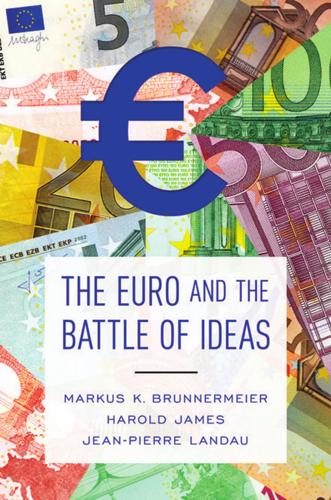
The Euro and the Battle of Ideas
by
Markus K. Brunnermeier
,
Harold James
and
Jean-Pierre Landau
Published 3 Aug 2016
Interestingly, Bismarck had similar problems with certain fiscally irresponsible states (Fürstentümer) within a loose confederation (North German Bund) prior to the foundation of German Empire in 1871.17 The French and Italian approach was to push ahead with the monetary union and hope that the missing elements would fall into place in due time. Crises might erupt, but they might be useful to follow through with the next steps at a time when “there is no alternative” (TINA principle). Such a fait accompli strategy was part of the European integration process from the beginning, but it also estranged the project from the general public. In a similar spirit, the introduction of joint liability through Eurobonds might resolve the current crisis, but the moral hazard implication would lead to further crises in the future—which would hopefully enforce through the TINA principle further integration rather than mutual resentment.
…
Valerie A., 142 Rathenau, Walter, 59–60 recapitalization, 203–4; of banks, 357; direct, 195–97 recessions, 143 Rechtsstaat (rule of law), 57–58 redemption pact, 112–13 redenomination risks, 226–27 refinancing, 321, 344 refugee crisis, 39–40, 378, 379, 381–82 Regling, Klaus, 24, 128, 146 Rehn, Olli, 306–7 Reichsbank Law (1924; Germany), 344 renminbi (Chinese currency), 281–82 Renzi, Matteo, 8, 36, 248 repo rate, 164 repos (sale and repurchase agreements), 164, 321; ELAs as, 322 reputation, in monetary policy, 91–93 reversal rate, 190–91 ring-fencng of assets, 213–14 risk-bearing capital, 204–6 Ritschl, Albrecht, 62–63 Rocard, Michel, 47 Rodrik, Dani, 375 Ronaldo, Cristiano, 192 Roncaglia, Alessandro, 238 Roosevelt, Franklin Delano, 102, 177 Röpke, Wilhelm, 60, 61, 65 Rostand, Edmond, 71 Rostowski, Jacek, 263 Rougier, Louis, 65 Roumeliotis, Panagotis, 303 Rueff, Jacques, 55, 67–68, 71, 72, 77 ruler model, 143 Russia, 283–86; Crimea annexed by, 36, 381; debts of, 295 Rüstow, Alexander, 65 Sachs, Jeffrey, 250, 266 safe assets, 182–83, 222–26 sale and repurchase agreements (repos), 164, 321 Samaras, Antonis, 230, 231 Santo e Silva, José Maria do Espírito, 201 Sapin, Michel, 39, 163, 233 Sapir, Jacques, 73 Saraceno, Pasquale, 238 Sargent, Thomas, 110, 252 Sarkozy, Nicolas, 1, 87; on Berlusconi, 246; Cameron and, 272; economic philosophy of, 73; on EFSF, 128–29; in election of 2012, 33–34; after flash crash, 25; on Greek debt restructuring, 119, 121, 307; on IMF, 297; meets with Berlusconi, 336; Merkel and, 28, 328–30; on Schuldenbremse, 149–50; Strauss-Kahn nominated as IMF director by, 22, 295–96; on Weber, 347–48 Sauvy, Alfred, 67 savings banks (Sparkassen), 160 Say, Jean-Baptiste, 6, 57, 69–70 Say’s Law, 69 Sberbank Europe AG, 283–84 Scandinavian Currency Union, 252 Schäuble, Wolfgang, 7; asssassination attempt against, 25; on Cyprus, 200, 341; in debate with Summers, 147; on deposit insurance, 221; Draghi and, 354; European Monetary Fund proposed by, 20, 297; on exiting from euro area, 228; Gaithner and, 263; on Greece, 232, 264–66; IMF and, 24; Outright Monetary Transactions supported by, 123; on saving eurp, 5; Varoufakis and, 231 Schengen agreement, 249 Schlesinger, Helmut, 325 Schmidt, Christoph, 64 Schmidt, Helmut, 48 Schmoller, Gustav, 58 Schröder, Gerhard, 146, 285 Schuldenbremse, 150 Schulz, Martin, 37 Scotland, 278 Scottish National Party (SNP), 278 secular stagnation, 143 Securities Markets Program (SMP), 335, 345–49 Seehofer, Horst, 63 Sen, Amartya, 73 Shafik, Nemat, 304 Shakespeare, William, 267, 383 short-term funding, 169–70 Sicily (Italy), 241 Siemens (firm), 49 Sikorski, Radek, 285 Single Bank Resolution Fund, 220, 221 Single European Act (1986), 22–23, 81 Single Resolution Mechanism, 220–21 Single Supervisory Mechanism (SSM), 371–72 Sinn, Hans-Werner, 63, 228, 266, 325, 359 Sinn Fein (Irish party), 232 Slovakia, 130 small and medium enterprises (SMEs), 49 Smith, Adam, 57 Smithianismus, 58 Snowden, Edward, 269 Socialist Party (France), 35, 37, 46 Social Security Act (US; 1935), 102 Société Générale (French bank), 159, 166 Sohmen, Egon, 55 solidarity, 380 solvency, 116, 118–19; liquidity versus, 125–28, 215, 380 Sombart, Werner, 58 Sorel, Albert, 43–44 Soros, George, 81–82, 163, 265, 267 sovereign debt, 89; foreign owned, 214; IMF on, 291–95; liquidity risk and, 332–33; restructuring of, 126–27 Sovereign Debt Reduction Mechanism (SDRM), 294 Soviet Union, 47 Spain: bank mergers in, 174; capital flows to, 167–68; diabolic loop in, 183; direct recapitalization of banks in, 196–97; ECB and, 94, 336; economic stimulus in, 148; ESM and, 353; euro crisis in, 31, 32; European Parliament elections in, 36; GDP boost in, 118; during global financial crisis, 261–62; IMF and, 310; inflation rate in, 178; national debt of, 121, 127–28; under Philip II, 96; Podemos in, 232; sovereign debt of, 224; zombie banks in, 189 special drawing rights (SDRs), 132–33, 281, 292; IMF and, 307–9 special purpose vehicle (SPV), 25 Spielberg, Steven, 45 spillover risk, 180–82 Spitzenkandidaten, 376 Sraffa, Piero, 11, 238 Staatswissenschaft, 57 Stability and Growth Pact (SGP), 28–29, 86, 92, 99; German attempts to repair, 148–50; negotiations leading to, 135–36; rules of, 146 Stark, Jürgen, 87, 135, 301, 350 Steinbrück, Peer, 163 Steinnson, Jon, 142 Stiglitz, Joseph, 73, 250 stimulus, debate over austerity versus, 148–54 Strauss-Kahn, Dominique, 73; arrest and resignation of, 304–5; during Greek crises, 298; as IMF managing director, 22, 260, 288, 295–96, 307; in troika, 301, 303, 304 stress tests for banks, 217, 254–55 structural conditionality, 301 subsidiary sovereign debts, 121 Süddeutsche Zeitung (newspaper), 64 Suharto, 293 Summers, Lawrence, 143, 144, 147, 151 Svensson, Lars, 53 Sweden, 381 Syrian refugee crisis, 39–40, 285–86, 382 Syriza party (Greece), 38, 152–53, 231, 232, 342 systemic risk, 180–82, 388 Szász, André, 85 tail risk, 389–90 TARGET2, 226–27, 302, 307, 323–25; Greece and, 343 targeted longer-term refinancing operations (TLTROs), 352, 360, 366 taxes: on Cypriot bank deposits, 199; in Cyprus, 340; financial transactions taxes, 205; in Ireland, 338 Taylor, John, 311 technological liquidity, 161 temporary monopoly rents, 203–4 terrorism, 36, 382 Tesobono crisis (Mexico), 292 Thatcher, Margaret, 92, 273; on single European market, 274; TINA (There Is No Alternative) principle of, 145 Thorning-Schmidt, Helle, 272 Tietmeyer, Hans, 132, 212, 316, 369 time-inconsistency problem, 87–88 TINA (There Is No Alternative) principle, 145 Tirole, Jean, 72 Tobin, James, 188 Tocqueville, Alexis de, 42, 43 Tomasi di Lampedusa, Giuseppe, 242 transfer unions, 106–11 Treaty on the Functioning of the European Union, 27, 220, 316 Tremonti, Giulio, 335 Trichet, Jean-Claude, 94; on Deauville agreement, 30; as ECB president, 316–18; on ECB’s price stability mandate, 320; on European Union, 374; Greek debt and, 304; on IMF, 23, 327–28; on Ireland, 338, 339; on Italy, 246; on private sector involvement, 329–31; on purchasing government bonds, 345; replaced by Draghi, 349–50; on unity of euro areas, 170 trilemma of international macroeconomics, 75–76 troika (European Commission, IMF, and ECB; the institutions), 25, 328; Greek adjustment program and, 334; IMF in, 300–304 Trump, Donald, 256 Tsipras, Alexis: at Brussels meeting, 266; elected prime minister of Greece, 342; in Greek election of 2014, 231; on IMF, 311–12; referendum called by, 232; Soros and, 267 Tusk, Donald, 20, 27, 275 UKIP Party, 276 Ukraine, 36, 284; conflict between Russia and, 285–86, 381; debts of, 295 unemployment: countries with high rates of, 108–9; Euro-wide unemployment insurance, 101–3 Unicredit (Italian bank), 215 unions, 51–53 United Kingdom, 241; Anglo-Saxon financial capitalism in, 162–63; under Brown, 267–70; under Cameron, 270–72; on ECB intervention, 131; economic theory in, 375; European Parliament elections in, 37; gold standard used by, 90–91; Icelandic assets seized by, 213; on IMF board, 296, 305; national debt of, 121; nineteenth-century economic philosophy in, 58; not in euro area, 249; reputation in monetary policy of, 91–92; threatened exit from European Union by, 272–79; withdraws from European Exchange Rate Mechanism, 82 United States: Anglo-Saxon financial capitalism in, 162–63; bankruptcies in, 256–59; banks and capital market in, 159; bilateral operation with Mexico, 21; divisions on economic theory in, 375; dollar currency of, 46–47; economic history of, 251–54; economic perspective of, 249–51; euro crisis and, 261–67; federal assumption of states’ debts in, 110–11; Federal Reserve System in, 95, 314; Greek exit and, 230; housing bubble in, 170; on IMF board, 296; international inflation tied to, 55; labor mobility in, 104; Landesbanken investments in, 165; New Deal programs in, 102; as polarizing influence, 286; Treasury bonds of, 224, 361 universal banking, 159–60 unsecured interbank markets, 164 Uruguay, 295 Valls, Manuel, 35, 182 vampire banks, 189, 205 Van Rompuy, Herman, 20, 23, 122, –219 Varoufakis, Yanis, 231, 233, 267, 342 Vesti, 239–40 Vienna initiative, 21 Vietnam War, 55 VLTROs (very long-term refinancing operations), 345–46, 349–52, 357 volatility paradox, 104, 182 Voltaire, 124 von Mises, Ludwig, 65 von Rompuy, Herman, 151, 304 wages, 106–7 Wagner, Adolph, 58 Waigel, Theo, 135 Walters, Alan, 79 Warsh, Kevin, 363 Washington Consensus, 79, 290 Weber, Axel: on IMF, 297; on monetary targeting, 53; resignation of, 345, 348; on Secondary Market Purchase program, 25; on Securities Markets Program, 347 Weber, Max, 2, 4 Weidmann, Jens: Bundesbank president, 307; as Bundesbank president, 132; Draghi and, 354; on European Union vulnerabilites, 66; on Goethe, 356–57; on IMF, 22; on VLTROs, 350 Weimar Republic, 44, 46; Great Inflation in, 54–55; Hayek on, 59 Welcker, Carl Theodor, 57–58 West LB (German bank), 165 White, Harry Dexter, 288–91 wholesale funding, 163–64 William III (king, England), 88 Wolf, Martin, 151, 268 World Bank, 269, 288 Wren-Lewis, Simon, 250 Xi Jinping, 275, 282 Yugoslavia, 47 Zapatero, José Luis, 23, 261–62, 336 zero lower bound (ZLB), 140, 364 Zhejiang Geely Group (Chinese firm), 282 Zhou Xiaochuan, 281 zombie banks, 188, 189, 205

A Pelican Introduction Economics: A User's Guide
by
Ha-Joon Chang
Published 26 May 2014
Behind every economic policy and corporate action that affects our lives – the minimum wage, outsourcing, social security, food safety, pensions and what not – lies some economic theory that either has inspired those actions or, more frequently, is providing justification of what those in power want to do anyway. Only when we know that there are different economic theories will we be able to tell those in power that they are wrong to tell us that ‘there is no alternative’ (TINA), as Margaret Thatcher once infamously put it in defence of her controversial policies. When we learn how much intellectual common ground there is between supposed ‘enemy factions’ in economics, we can more effectively resist those who try to polarize the debate by portraying everything in black and white.
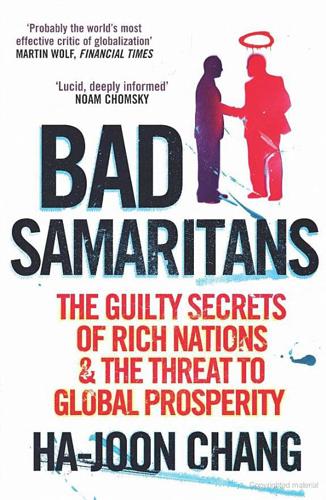
Bad Samaritans: The Guilty Secrets of Rich Nations and the Threat to Global Prosperity
by
Ha-Joon Chang
Published 4 Jul 2007
Many more stories like this can be told, but they all suggest that international trade negotiations are a highly lopsided affair; it is like a war where some people fight with pistols while the others engage in aerial bombardment. Are the Bad Samaritans winning? Margaret Thatcher, the British prime minister who spearheaded the neo-liberal counter-revolution, once famously dismissed her critics saying that ‘There is no alternative’. The spirit of this argument – known as TINA (There Is No Alternative) – permeates the way globalization is portrayed by the Bad Samaritans. The Bad Samaritans like to present globalization as an inevitable result of relentless developments in the technologies of communication and transportation. They like to portray their critics as backward-looking ‘modern-day Luddites’30 who ‘fight over who owns which olive tree’.
…
Going against this historical tide only produces disasters, it is argued, as evidenced by the collapse of the world economy during the inter-war period and by the failures of state-led industrialization in the developing countries in the 1960s and the 1970s. It is argued that there is only one way to survive the historic tidal force that is globalization, and that is to put on the one-size-fits-all Golden Straitjacket which virtually all the successful economies have allegedly worn on their way to prosperity. There is no alternative. In this chapter, I have shown that the TINA conclusion stems from a fundamentally defective understanding of the forces driving globalization and a distortion of history to fit the theory. Free trade was often imposed on, rather than chosen by, weaker countries. Most countries that had the choice did not choose free trade for more than brief periods.

Ground Control: Fear and Happiness in the Twenty First Century City
by
Anna Minton
Published 24 Jun 2009
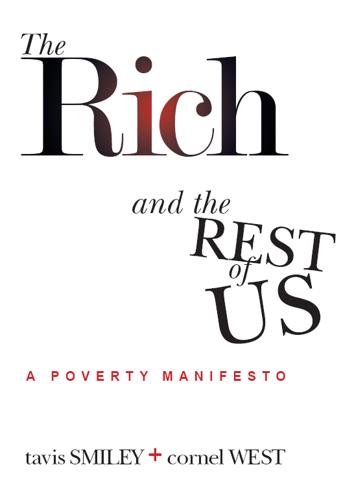
The Rich and the Rest of Us
by
Tavis Smiley
Published 15 Feb 2012
We need leaders in the prophetic Christian tradition, like Rauschenbusch, King, and Gandhi. They must stoke the embers of righteous indignation into an almighty, inextinguishable blaze. When it comes to poverty, America has adhered to “TINA” (“there is no alternative”), the slogan attributed to former British Prime Minister Margaret Thatcher. We propose replacing TINA with TIALA: “There is another loving alternative.” Here now we wish to ask the central question raised by the Reverend Dr. Mark Taylor: “Whatever happened to the notion of love in our public discourse?” We should perhaps define what we mean when we use the slippery term “love.”
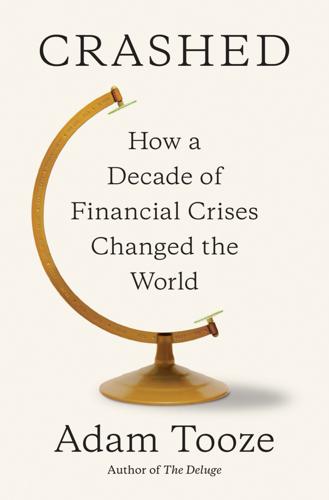
Crashed: How a Decade of Financial Crises Changed the World
by
Adam Tooze
Published 31 Jul 2018
Merkel promised an affirmative Bundestag vote for May 7. The question was whether the markets would give Europe that long. Merkel presented the rescue package to the German Bundestag on Wednesday, May 5. It was, she declared, “alternativlos”—without alternative.49 Merkel’s rewording of Margaret Thatcher’s famous pronouncement—there is no alternative (TINA)—was to become notorious. Meanwhile, that same day Greece was rocked by a general strike that mobilized both main wings of the Greek labor movement and shut down transport and public services. In Athens protesters fought running battles with riot police. As the parliamentarians debated the austerity program in committee, a firebomb crashed through the window of a branch of Marfin Bank, setting the building alight and killing three staff members.
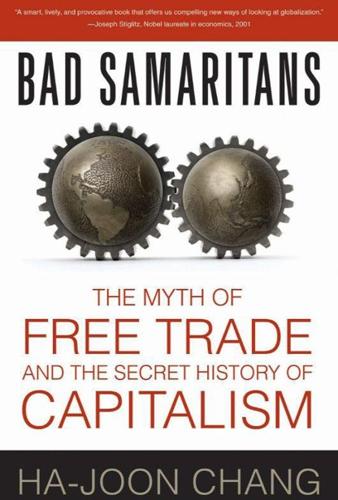
Bad Samaritans: The Myth of Free Trade and the Secret History of Capitalism
by
Ha-Joon Chang
Published 26 Dec 2007
Many more stories like this could be told, but they all suggest that international trade negotiations are a highly lopsided affair; it is like a war where some people fight with pistols while the others engage in aerial bombardment. Are the Bad Samaritans winning? Margaret Thatcher, the British prime minister who spearheaded the neo-liberal counter-revolution, once famously dismissed her critics saying that ‘There is no alternative’. The spirit of this argument – known as TINA (There Is No Alternative) – permeates the way globalization is portrayed by the Bad Samaritans. The Bad Samaritans like to present globalization as an inevitable result of relentless developments in the technologies of communication and transportation. They like to portray their critics as backward-looking ‘modern-day Luddites’30 who ‘fight over who owns which olive tree’.

Before the Storm: Barry Goldwater and the Unmaking of the American Consensus
by
Rick Perlstein
Published 17 Mar 2009
The analogy wouldn’t be exaggerating what has happened since 1964 too much. It might even be underplaying it. When commentators want to remark on today’s sweeping embrace of market thinking, the retreat of the regulatory state, and America’s military role as the “indispensable nation,” a shorthand rolls off their tongue: “There Is No Alternative”—TINA. But such things have been said before. Go back to 1952. When the first Republican President in twenty years was elected, liberals feared Dwight D. Eisenhower would try to roll back the Democratic achievements of the New Deal—minimum wage and agricultural price supports; the Tennessee Valley Authority, that massive complex of government-built dams that brought electricity to entire swatches of the Southeast that had never seen it before; Social Security; and many, many more.
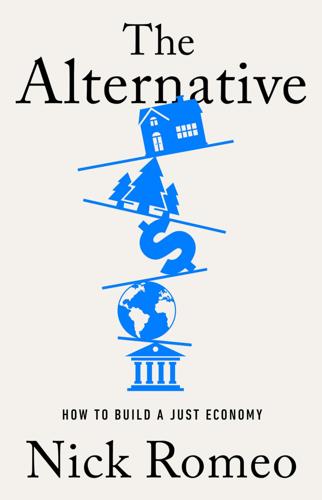
The Alternative: How to Build a Just Economy
by
Nick Romeo
Published 15 Jan 2024

The Fair Trade Scandal: Marketing Poverty to Benefit the Rich
by
Ndongo Sylla
Published 21 Jan 2014

Move Fast and Break Things: How Facebook, Google, and Amazon Cornered Culture and Undermined Democracy
by
Jonathan Taplin
Published 17 Apr 2017
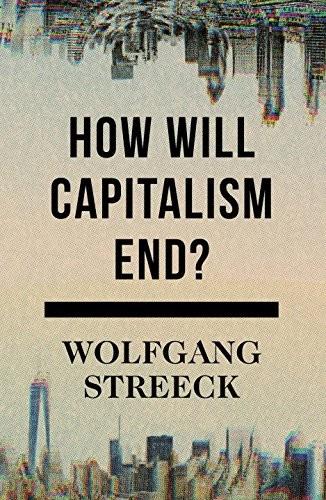
How Will Capitalism End?
by
Wolfgang Streeck
Published 8 Nov 2016
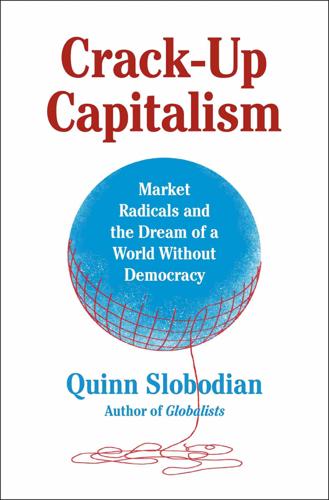
Crack-Up Capitalism: Market Radicals and the Dream of a World Without Democracy
by
Quinn Slobodian
Published 4 Apr 2023
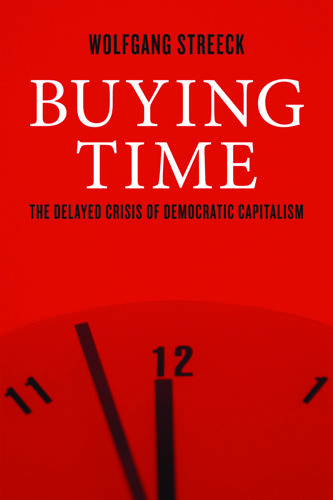
Buying Time: The Delayed Crisis of Democratic Capitalism
by
Wolfgang Streeck
Published 1 Jan 2013

What About Me?: The Struggle for Identity in a Market-Based Society
by
Paul Verhaeghe
Published 26 Mar 2014

The Age of Stagnation: Why Perpetual Growth Is Unattainable and the Global Economy Is in Peril
by
Satyajit Das
Published 9 Feb 2016
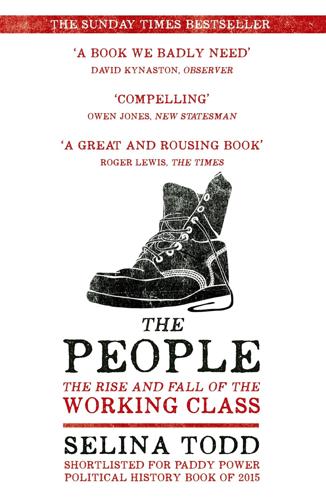
The People: The Rise and Fall of the Working Class, 1910-2010
by
Selina Todd
Published 9 Apr 2014
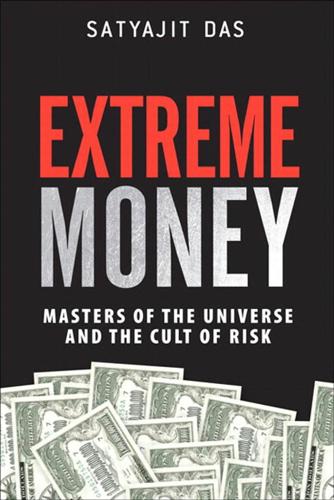
Extreme Money: Masters of the Universe and the Cult of Risk
by
Satyajit Das
Published 14 Oct 2011

No Such Thing as Society
by
Andy McSmith
Published 19 Nov 2010

Big Capital: Who Is London For?
by
Anna Minton
Published 31 May 2017
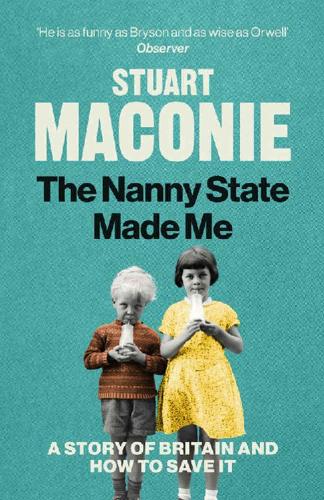
The Nanny State Made Me: A Story of Britain and How to Save It
by
Stuart Maconie
Published 5 Mar 2020

Liberalism at Large: The World According to the Economist
by
Alex Zevin
Published 12 Nov 2019

Ten Lessons for a Post-Pandemic World
by
Fareed Zakaria
Published 5 Oct 2020
Krugman, Wolf, and Geithner were all accurately describing the fragility of that system, pointing to cracks and worrying that one of them would cause the entire edifice to collapse. But despite their concerns, few structural repairs were ever undertaken. There was a pervasive sense that, in the phrase Margaret Thatcher famously used to shut down debate over free-market economics, “there is no alternative.” She used the slogan so much that some of her cabinet colleagues began to call her “TINA.” That phrase captured the spirit of the times, an almost Marxist idea of historical inevitability—except that capitalism, rather than socialism, was the ideology lying at the “end of history.” And it wasn’t just Thatcher. Nearly every Western leader believed that global capitalism had become ubiquitous, like the air we breathe.
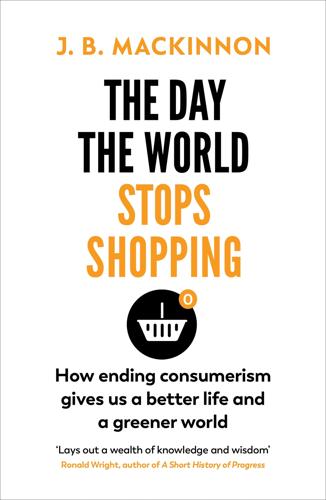
The Day the World Stops Shopping
by
J. B. MacKinnon
Published 14 May 2021